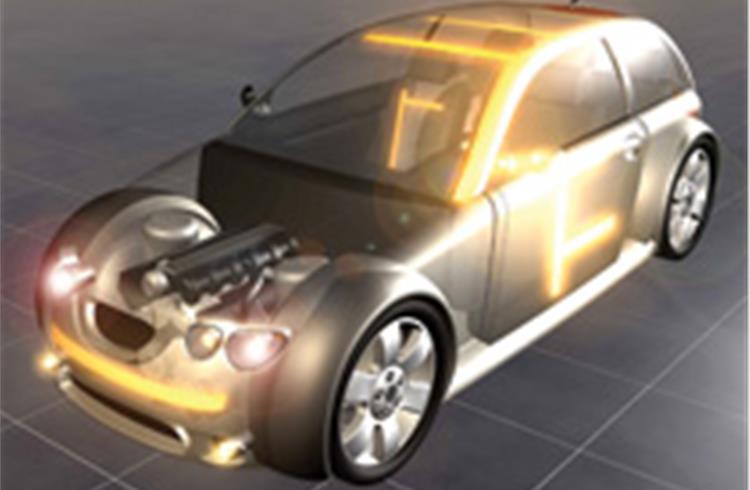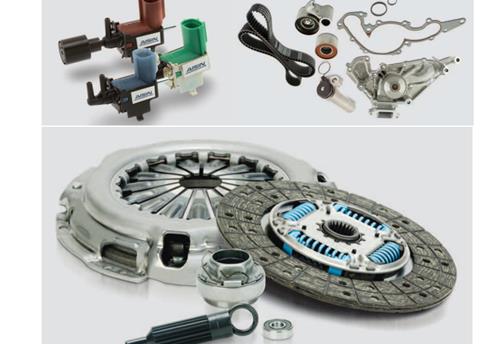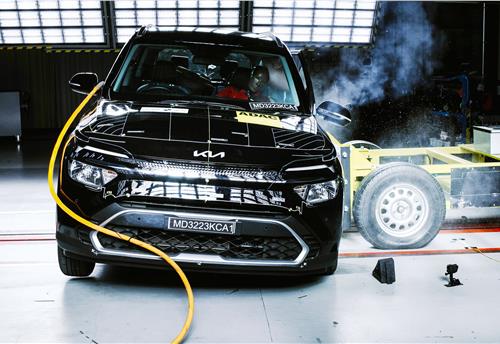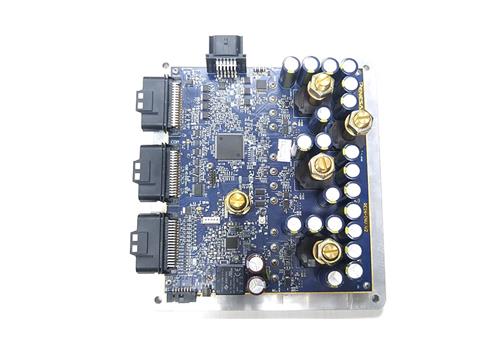Delphi bullish on its auto electronics biz
US-based supplier is gearing up to grow its India business driven by the increasing electronic content in Indian-made vehicles. Darius Lam reveals its future plans.
Delphi is very optimistic about the growth of the automotive electronics sector in India and is investing in building up research and production resources to meet this demand in the coming years. According to Ashok Ramaswamy, president and managing director, Delphi India, “We are working with customers to provide start/stop solutions and CNG technology for India which will contribute to significant reductions in vehicle emissions and noise pollution, particularly in heavy traffic urban environments.” Delphi believes that the growing global trend, including in India, for green vehicles that use less fuel will drive the use of electronics in vehicles. “This new generation of vehicles is seen as an emerging alternative to the polluting models of today. Technologies like alternative energy vehicles, hybrids, fuel cells and alternative fuel vehicles are gaining popularity,” explains Ramaswamy.
The company affirms that India remains a key market for Delphi and Ramaswamy says, “we expect a positive growth trend for the Indian automotive market during 2009-2010. In sync with these plans, we have expanded our Technical Centre in Bangalore to enhance our technological capabilities as well as capacity in the next few years.”
The company says it had realised the potential of Indian engineers early on and set up its Technical Centre India (TCI) in Bangalore in 2000 to support the technology needs of the global automobile industry. Since then, TCI has grown and expanded rapidly and currently it has over 700 engineers and an 84,000 square foot facility. “Delphi is planning to add 150 more engineers in the next couple of years to support local and global automotive programmes,” says Ramaswamy.
TCI contributes to the company’s overall technology development efforts worldwide and complements Delphi's manufacturing base in India and the rest of the Asia-Pacific region. It develops embedded software for many of Delphi Corporation's fastest growing product lines. In the future, it is expected to continue supporting Delphi’s global engineering needs in various competencies for all the regions and simultaneously grow into areas such as product engineering for the local Indian market.
Sounding an optimistic note, Ramaswamy adds: "We are working on a lot of interesting projects with all the major OEMs in India. India is a key market for Delphi and with new technologies becoming a reality every day, Delphi believes that providing a range of safety and electronics products will be the way forward in the Indian automobile industry.”
To fully realise the market potential here, Delphi is focussing on expanding its product portfolio, product and applications engineering and manufacturing capability. “The key here is that we will step up our technology roll-out in India,” says Ramaswamy. Delphi's key customers in India include Maruti Suzuki, Tata Motors and Mahindra & Mahindra. In the coming years Delphi says it is expecting continued growth, thanks to the growth in demand for small cars within the country, which is expected to triple in volume in the next five years. The company has manufacturing facilities at Bangalore, Noida, Dharuhera and Gurgaon.
Delphi has already customised some technologies for Indian customers, for example Delphi and Mahindra & Mahindra developed the ‘Digital Drive Assist System’ for the Xylo MPV. “Our involvement with our customer in making this system helped to add uniqueness to the Mahindra Xylo, thus making it superior to saloon cars. The customisation included providing inputs for features such as displaying ‘Distance to Empty’, computing fuel economy, computing direction using a 3-D electronic compass, displaying cabin temperature and humidity. Similarly, we customised the Instrument Panel Cluster (IPC) and immobiliser for the Tata Nano to provide the necessary performance at an affordable price.” Ramaswamy explains. Delphi developed these parts for the Nano at its TCI in Bangalore with support from Tata’s ERC division and Delphi’s Technology Center in Michigan, USA.
“The need for electronics in a low-cost car like the Nano is essential for functions like fuel economy and meeting emission regulations. They can also be used for comfort, convenience and entertainment within the vehicle. In the case of the Nano, most bookings have been for the high-end version, indicating that the demand for electronics in low-cost cars will continue to grow,” adds Ramaswamy.
Delphi believes that the trend towards electronics within India would be guided by factors like price, fuel economy and the life cycle of vehicles. “Our vision is to profitably grow our revenues by leveraging India’s position as a global small car market leader, while also leveraging Delphi India’s cost effective engineering and manufacturing footprint,” asserts Ramaswamy.
For two-wheeler OEMs, Delphi is offering products such as India’s first-ever fuel injection system and it has also developed a technology aimed at reducing evaporative emission for two-wheelers and three-wheelers. The primary function of the evaporative emissions system is to prevent hydrocarbons from being released into the atmosphere and store them in a canister until they can be reintroduced into the intake air stream at a later time. This technology has been jointly developed by Delphi’s engineers based in India and Europe.
Another new electronic system that the company is offering here is its 12V Stop/Start system, which helps reduce fuel consumption and lower emissions by turning the engine off at idle and promptly restarting it via the accessory belt. It is integrated with Delphi’s engine management system. “Our auto electronics business in India is on target and our revenue mix will move towards electronics in a big way,” concludes Ramaswamy.
RELATED ARTICLES
Ask Automotive to set up JV with Aisin to sell aftermarket parts for cars
Ask Automotive will have 51% of the equity of the joint venture to be set up with Aisin Asia (Thailand) Company and Aisi...
Kia Carens gets 3-star Global NCAP rating in fresh tests
The Carens MPV, which was tested twice under the new protocol, scored zero stars for adult occupancy in the first test.
Tata Elxsi-Renesas MCU for EVs enables cost optimisation, speedier time to market
Modular, scalable design of Motor Control Unit enables integration across diverse EV applications. Claimed to be reduce ...





 By Autocar Pro News Desk
By Autocar Pro News Desk
 06 Oct 2009
06 Oct 2009
 3260 Views
3260 Views









